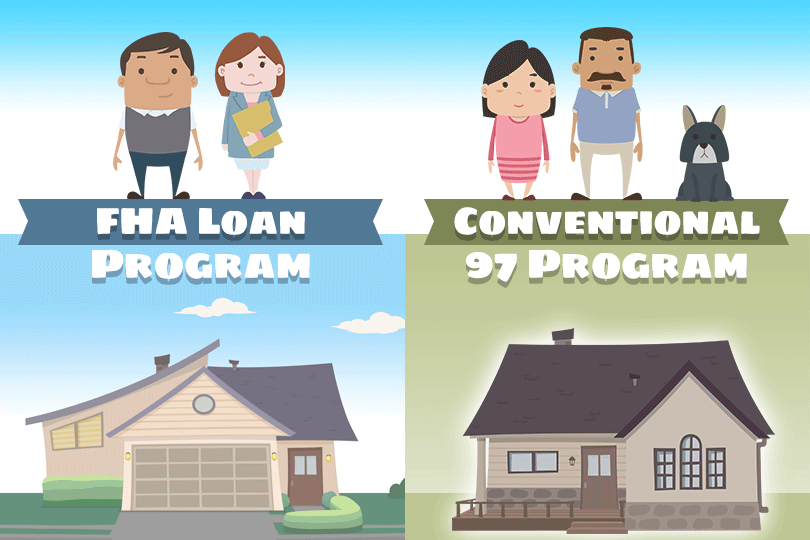What Kind of Home Loan Works for Me?
March 30, 2022
Here are four types of mortgages to choose from.
FHA Loan
An FHA loan is one that is insured by the U.S. Federal Housing Administration and granted by lenders who are approved by the agency. FHA loan programs are generally designed with first-time homebuyers in mind, making them easier to qualify for than conventional home loans. With a government organization backing the loans, lenders are protected from losses when granting home loans to borrowers who may otherwise be considered high-risk. That is why FHA loans are known for having less stringent eligibility requirements, with minimum credit scores of 580, a debt-to-income ratio of 43% or less, and a low- down payment of 3.5%.
VA Home Loan
Backed by the U.S. Department of Veterans Affairs, VA home loans are available to active or retired members of the U.S. military, as well as to certain qualifying relatives. Applicants are required to have a certificate of eligibility from the VA in order to apply for a VA loan. This loan type has many of the same benefits as the FHA loans, with lower credit requirements. However, one of the things that makes VA home loans particularly attractive to eligible servicemembers is that they do not require any down payment. In fact, about 90% of VA borrowers put down no money at all when they buy homes.
USDA Mortgage
Similar to both the VA and FHA programs, USDA home loans are designed to make homeownership more affordable for Americans. USDA loans are backed by the United States Department of Agriculture, and meant for borrowers looking to buy homes in qualifying rural areas. Since this loan type is meant for low and moderate-income individuals, the USDA sets income limits for their programs, generally no higher than 115% of the median income for the area.
Conventional Mortgage
Also known as a traditional mortgage, a conventional home loan is one that is not insured by any government agency. That means that you won’t need to meet specific requirements other than those set by the lender.
While conventional loans are the most popular mortgage option, they are at times more difficult to qualify for. They usually have stricter stipulations than other loan types. Most conventional loan lenders require a credit score of 620 or higher and a minimum down payment of 5% with private mortgage insurance required. That being said, conventional loans typically offer lower interest rates compared to other loan types.
It’s important that you know exactly what you are getting into when buying a house, and your mortgage is huge part of that. Talk to a experienced loan officer about your choices, and see what the best mortgage option is for you!
------------------------------
RELATED VIDEOS:
A Good Faith Estimate Provides Mortgage Information
Measuring Your Loan-to-Value Ratio
Monitor Your Credit Score

FHA Loan Articles
March 31, 2025Is 2025 the right year for you to consider an FHA streamline refinance? These mortgages are for those who want a lower interest rate, a lower monthly payment, or to move out of an adjustable-rate mortgage and into a fixed-rate loan. We examine some of the critical features of FHA streamline refinances.
March 27, 2025Did you know there are FHA loans that let house hunters buy multi-family properties such as duplexes and triplexes? FHA rules for these transactions is found in HUD 4000.1, including owner-occupancy, require that one unit serve as the borrower’s primary residence. Some house hunters ask why this rule exists. Some believe the rule serves as a lender risk mitigation strategy.
March 25, 2025What does it take to sell a house purchased with an FHA mortgage? Are there special rules, restricrtions, or added considerations? We examine some key questions and their answers to FHA real estate sales issues.
March 24, 2025If you are selling a home, you may need to negotiate with buyers to fund their purchases with an FHA mortgage. What do you, as a seller, need to know about FHA mortgages and how they may differ from conventional loans? We examine some common issues.
March 24, 2025How much do you really know about how FHA home loan interest rates are set and what factors influence them before your lender makes you an offer? We explore some key points about FHA loan rates, FICO scores, and debt ratios.







